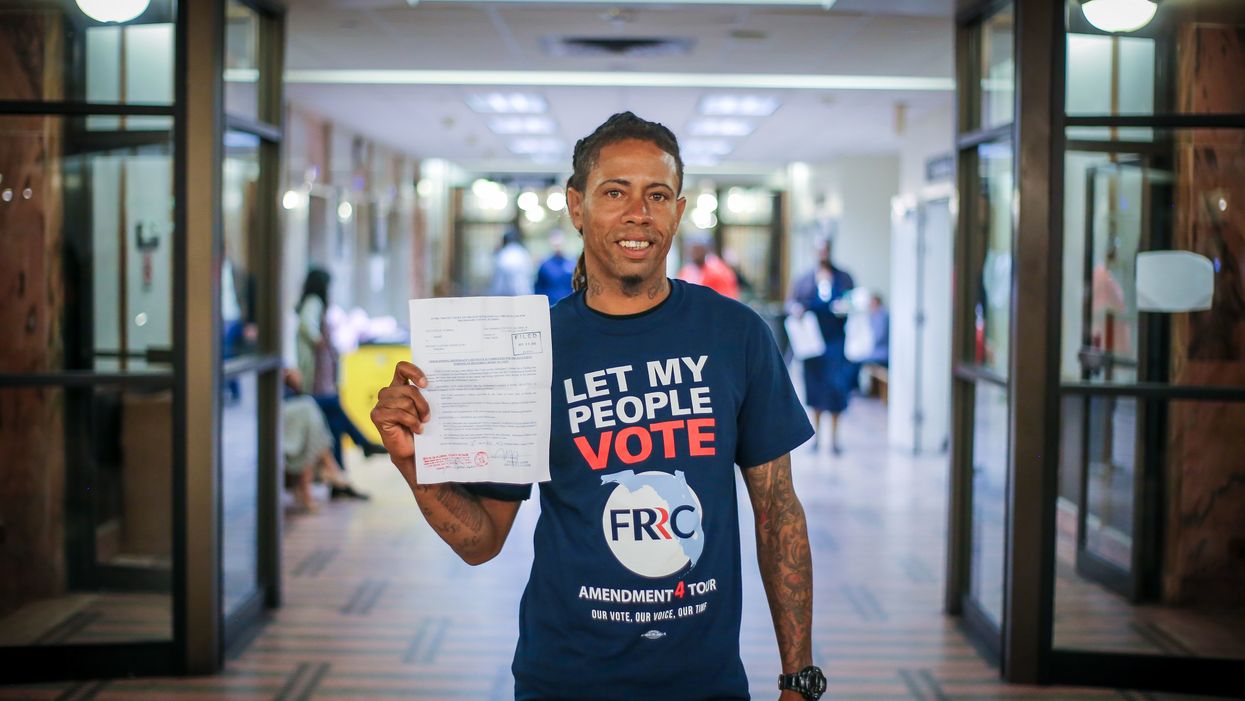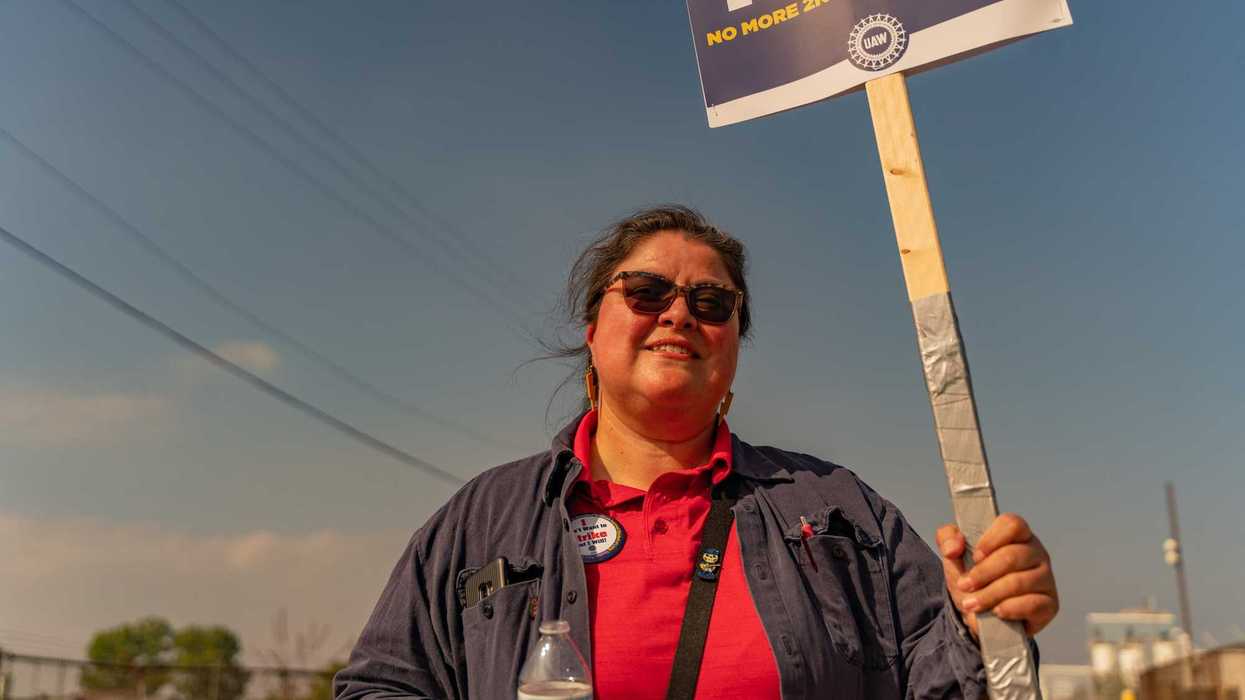The on-again, off-again political rights of people released from prison in the nation's biggest purple state has been one of the most prominent democracy reform stories of the past two years. For now, they're off again.
A federal appeals court has put on hold a lower court's ruling that had opened up registration and voting to upwards of a million Florida felons.
The 11th Circuit Court of Appeals on Wednesday granted a request from Gov. Ron DeSantis to stay the trial judge's decision — which for a month stood as the year's biggest victory for voting rights — and have the entire appeals panel hear the case in August, bypassing the usual practice of starting with just three judges.
The governor is hoping to reverse a decision from Judge Robert Hinkle, who in May struck down as an unconstitutional "pay-to-vote system" the new state requirement that felons pay all their fines, fees and court costs before getting to vote again.
The outcome, which seems destined to be decided in the Supreme Court after the presidential election, has enormous national significance. That's not only because the voting rights of felons has become a main cause of the civil rights movement but also because hundreds of thousands of new, probably Democratic voters could start tipping outcomes in a state where extremely narrow margins in major elections have been the norm for two decades.
A law enacted last year by a GOP-majority Legislature and signed by DeSantis, also a Republican, requires felons to pay all their court-ordered financial obligations before registering. It was based on the rationale that those payments constituted completion of a criminal sentence.
The measure was written after nearly two-thirds of the state's voters in 2018 approved a state constitutional amendment restoring voting rights to almost all felons (except murderers and sex offenders) who had completed "all terms of their sentence including parole or probation."
Opponents of the law argue the financial requirements amounted to the sort of poll taxes that were barred by constitutional amendment in the 1960s after they were used across the South to suppress the votes of Black people.
Law professor Richard Hasen with the University of California at Irvine wrote in his Election Law blog that the 11th Circuit's decision to stay the lower court ruling and expedite the appeal may signal the coming reversal of the ruling.
How much of an impact restoring felon voting rights would have in the Aug. 18 congressional and legislative primaries and the fall presidential race in Florida (where the state's 29 electoral votes are the third-biggest prize) is uncertain because it is not clear how many would actually register and vote.
Research has shown that felons who get their franchise back after their release from prison are far more likely to register as Democrats but also are less likely to vote at all.
In seeking to put the judge's decision on hold, the governor's lawyers argued that allowing even one felon to vote while there's a chance Hinkle's ruling would be overturned "would inflict irreparable harm on the state."
"Indeed, if the district court's order is in place during the elections, but is later vacated, the integrity of the elections will have been corrupted and their results possibly opened to challenge," they argued.
The consensus view is that about 750,000 Floridians would need to come up with money before voting again if the state law is upheld.




















Why does the Trump family always get a pass?